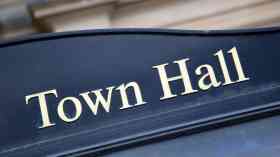Bus funding cut by 40 per cent in last decade
Funding for buses in England is almost £400 million a year lower than it was ten years ago, according to the Campaign for Better Transport.
The charity has analysed government datasets and data obtained from Freedom of Information requests to all local transport authorities in England, and found that national government support for buses is now £234 million a year lower than in 2009/10, and that local authority funding for buses is £163 million lower in real terms compared to ten years ago – a reduction of over 40 per cent.
Arguing that the government's promised National Bus Strategy must herald a change in the way buses are funded, with a multi-year revenue funding settlement as well as capital support for the transition to a zero-emission bus fleet, the new report also claims that more than half of local authorities have cut their financial support for buses by 50 per cent or more since 2009. The result has been that well over 3,000 local authority supported bus services have been lost or reduced in a decade; 243 in the past year.
Future of the bus: future funding arrangements is calling for: a single, ring-fenced, long-term fund, replacing the Bus Service Operators Grant and the English National Concessionary Travel Scheme, aimed at rejuvenating England's bus networks and supporting concessionary fares; capital support to accelerate the transition to zero emission buses, alongside a 2025 deadline for all new buses to be only electric or hydrogen-powered; and new revenue streams for local authorities to support the growth in public transport, such as Workplace Parking Levies, Clean Air Zones and a pay-as-you-drive road user charge to replace Vehicle Excise Duty and fuel duty.
Darren Shirley, chief executive of Campaign for Better Transport, said: "Reductions in funding to support bus services has consequences. It leads to isolation and social exclusion and hinders access to employment, education and training as people find it more difficult and costly to travel. It hampers efforts to tackle air pollution, greenhouse gas emissions and road congestion.
"The National Bus Strategy offers a chance to turn around the fortunes of many communities that rely on the bus. The government must put in place a new funding settlement that supports and grows bus networks and delivers social as well as economic and environmental benefits: we want to see a thriving, affordable network of buses serving all communities."







